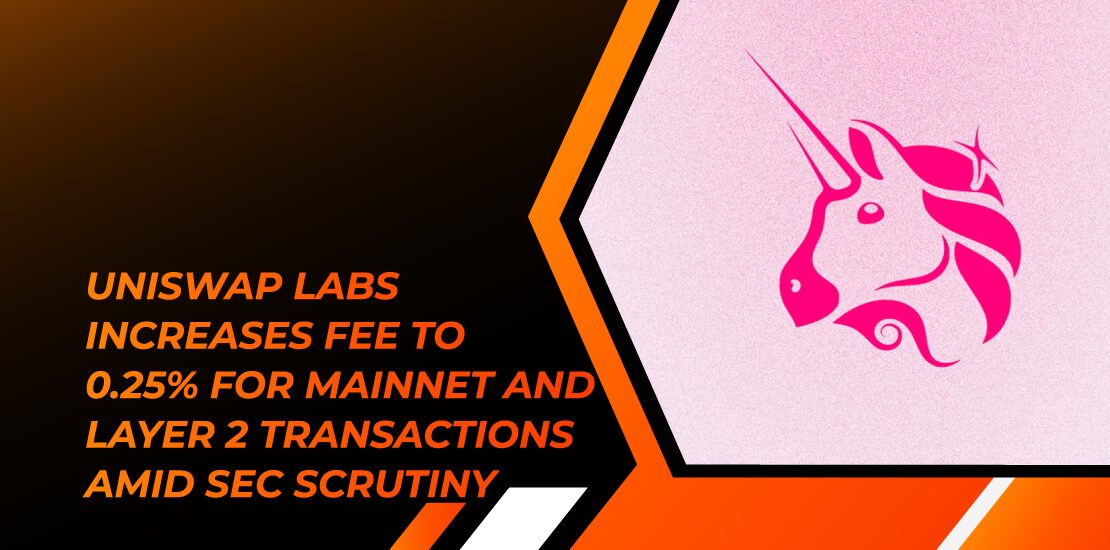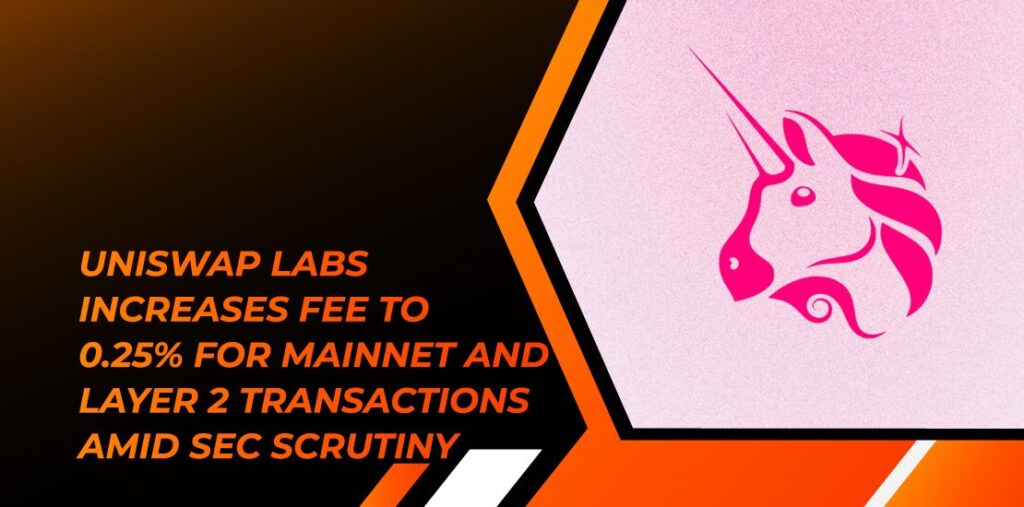- April 15, 2024
- Posted by: [email protected]
- Category:


Uniswap Labs, the pioneering force behind the revolutionary decentralized exchange protocol, Uniswap, has recently made waves in the cryptocurrency community with its decision to adjust trading fees on its platform. Effective April 10th, Uniswap Labs increased the fee charged to users for most swaps conducted through its interface from 0.15% to 0.25%, marking a notable shift in the cost structure of utilizing the platform for decentralized trading activities. This move, reflected in blockchain data, underscores the dynamic nature of decentralized finance (DeFi) protocols and their ongoing efforts to strike a balance between sustainability and user experience.
While the fee adjustment impacts the majority of swaps, Uniswap Labs has strategically exempted certain transactions from the fee hike. Notably, trades involving stablecoins pegged to the same underlying currency and swaps between Ethereum (ETH) and wrapped Ethereum (WETH) are among those spared from the fee increase. This strategic exemption reflects Uniswap Labs’ commitment to maintaining accessibility and flexibility within its ecosystem, ensuring that users have options to navigate the evolving fee landscape.
Moreover, users seeking to avoid the revised fee structure altogether have the alternative option of accessing the Uniswap protocol through alternative interfaces, bypassing the official interface developed by Uniswap Labs. This decentralized nature of access underscores the fundamental ethos of DeFi, empowering users with choice and control over their financial interactions.
The fee adjustment comes against the backdrop of broader regulatory scrutiny faced by Uniswap Labs and the decentralized finance sector as a whole. Uniswap founder Hayden Adams recently disclosed that the company received a Wells Notice from the U.S. Securities and Exchange Commission (SEC), signaling potential legal action. This development follows earlier reports of the SEC’s investigation into Uniswap, with allegations of operating as an unlicensed exchange and dealing in unregistered securities.
Despite these regulatory challenges, Uniswap Labs continues to emphasize its role as a software development entity primarily focused on core protocol development. Adams reiterated this point during an interview with Bankless, highlighting Uniswap Labs’ commitment to open-source collaboration and community-driven innovation.
In line with fee adjustments and regulatory developments, the Uniswap community has engaged in lively governance discussions surrounding proposed changes to the platform’s fee mechanism and revenue distribution. A recent governance proposal aiming to grant the decentralized autonomous organization (DAO) authority to modify Uniswap’s fee mechanism and activate a long-awaited “fee-switch” mechanism was met with contention and ultimately rejected. This decision underscores the complex interplay between decentralization, community governance, and protocol sustainability within the DeFi ecosystem.
In addition to governance dynamics, Uniswap Labs has continued to innovate and enhance the user experience with the recent launch of a browser sidebar extension. This extension introduces a novel way for users to interact with digital assets directly from their browser, streamlining the process of swapping assets, signing transactions, and executing trades. With features like Limit Orders, users gain greater flexibility and control over their trading strategies, enhancing the overall utility of the Uniswap ecosystem.
Amidst these developments, the market performance of UNI, Uniswap’s native governance token, has experienced fluctuations. With a decline of over 7% in the past day, more than 35% over the past week, and approximately 48% over the past month, according to CoinMarketCap data, UNI’s price movements reflect broader market sentiment and investor perceptions of the DeFi landscape. As Uniswap Labs navigates regulatory challenges, implements fee adjustments, and advances technological innovation, the broader implications for decentralized finance and the future of decentralized exchange protocols remain subjects of keen interest and ongoing debate within the cryptocurrency community.



